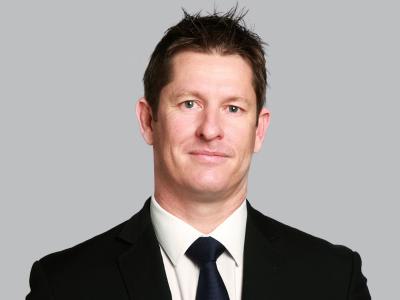It’s been argued that superannuation could be considered to be your number one investment asset heading into retirement.
After your residential home, which for most is a lifestyle asset rather than investment, we are all looking towards superannuation savings or Centrelink to fund our retirement.
For this reason it’s important to be able to maximise the benefits that the superannuation vehicle provides us. When changes take place, like those coming in July this year, it’s vital that we are aware of these so that we can make the most of the opportunities they present.
If you’re currently self-employed and have previously worked for the WA State Government prior to 1983, a change is coming.
This will close the door on an opportunity to maximise the Tax Free Benefit of the superannuation benefits you hold in your old GESB Gold State or West State super funds.
Some time ago, back in July 2007, a change to superannuation completely redefined the core parts of all superannuation funds in the country.
A calculation took place which split everyone’s superannuation into two key parts, a taxed component and a tax free component. Prior to this there were over seven different components all taxed differently.
This event was known as the ‘Crystallisation of Benefits’ which basically looked at the starting ‘service date of your fund’, generally linked to your employment start date, the total number of service years before 1 July 1983 and the total fund value.
The formula used, shown below, then determined the crystallised tax free component…

But, this didn’t happen for GESB West State and GESB Gold State accounts.
In fact it won’t happen until you either ‘withdraw a lump sum’ out of the fund, ‘transfer a lump sum to another super fund’, ‘transfer the balance out’ to commence a pension or ‘on death’. These are called crystallisation events.
This means that there is still the opportunity to increase the proportion of the tax free component calculated by the crystallisation formula.
This can be done quite simply by making additional tax deductible and after tax contributions to the fund before triggering a crystallisation event.
But time is running out…
As we discussed here, one of the major benefits of being self-employed, and a member of GESB West State, is that you’ve been able to make large tax deductible contributions into your fund well over the current tax deductible contribution cap.
Plus you have been able to claim a tax deduction for the contribution, effectively reducing your personal income tax. And until 30 June 2017 you still can!
After this date self-employed tax deductible contributions will no-longer be accepted by GESB, which means this strategy is dead, and the opportunity could be lost…
From then on, only employees of the WA State Government will be able to do this, and only by making salary sacrifice arrangements.
To illustrate the impact of the contribution and crystallisation strategy we have compared the potential impact of making two contributions into superannuation...
1. a $25,000 tax deductible contribution, and
2. a $100,000 after tax contribution
...assuming that the GESB West State fund starts with a value of $100,000 and has a commencement date of 30 June 1978.
Scenario 1 shows the two contributions going into a personal super fund (not West State).
Scenario 2 shows the two contributions going into the GESB West State account and a crystallisation event being triggered.
As you can see in Scenario 2, there is an increase of almost 7% in the tax free component, or just over $16,000. In both cases the investor would also be able to claim a tax deduction for the $25,000 contribution.
With larger contributions that can be currently made into to the GESB fund the benefits would be greater.
The major benefit however comes from the fact that the crystallisation calculation is done against the whole fund value to give the pre-83 tax free amount. And then any actual tax free contributions that have been made, in our case $100,000, is also added on top.
Effectively giving you a double dip on the tax free amounts.
From 1 July, tax free contribution caps will reduce to $100,000 from $180,000 per year. This also includes the special ‘bring forward’ rule reducing to 3 x $100,000 = $300,000, a potential loss of up to $240,000 if you are eligible. Plus there will also be some additional eligibility rules as well.
If this strategy is appropriate to your circumstances you could stand to increase the value of your superannuation fund, plus achieve a measurable improvement in your tax free component.
This can have both retirement and estate planning benefits.
Additionally where large tax deductible contributions are used, it can also help to reduce your personal income tax liability.
But a word of warning!
Untaxed funds have a number of rules around them such as the life time limit, classifying contributions correctly and claiming your deductions appropriately with the ATO, which are tricky to navigate and can be very costly if you get it wrong.
This type of strategy is not suitable, or available, to everyone especially the timing of the crystallisation event. So you need to assess your personal circumstances carefully and understand all the relevant conditions.
Given the complexity plus the looming 30 June 2017 deadline, to take advantage of this opportunity you should consider seeking help from our GESB Specialist Team.
In addition, if you are planning to retire soon we’ll ensure that the strategy for your super and pension fund is optimised to take into consideration the new change to pension fund account balance caps which also commence on the 1 July 2017.
For more information >> click here << and leave your details and we’ll have a GESB wealth specialist contact you.
This page has been prepared by RSM Financial Services Australia Pty Ltd ABN 22 009 176 354, AFS Licence No. 238282.
As everyone's circumstances are different and this article doesn't take into account your personal situation, it is important that you consider the above in light of your financial situation, needs and objectives, and seek financial advice before implementing a strategy.
View the Financial Services Privacy Statement and Policy, Complaints Policy, Financial Services Guide and RSM Privacy Policy.




